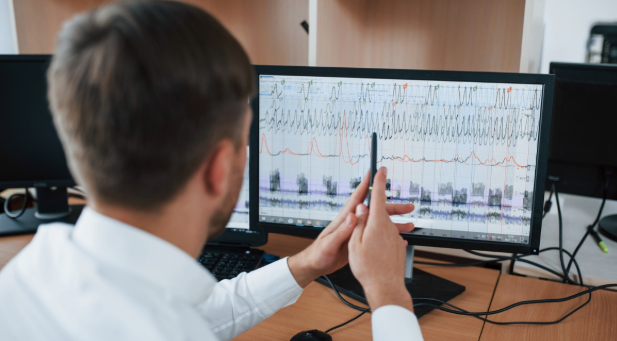While polygraph exams may appear useful during the hiring process, the Employee Polygraph Protection Act (EPPA) strictly prohibits most private employers in the U.S. from using lie detector tests for pre-employment screening or routine employee evaluations.
There are very limited exceptions, such as for companies involved in security services or the pharmaceutical industry, and even then, stringent guidelines must be followed.
Additionally, “secret” or undisclosed polygraph testing is illegal under EPPA. Any polygraph exam conducted in a private workplace setting must be consensual, with clear written notice, employee rights disclosure, and strict adherence to federal procedures.
Besides using polygraphs to screen potential employees, many companies rely on lie detectors to investigate workplace incidents like theft, embezzlement, vandalism, etc. Such tests constitute specific loss examinations.
Here’s a guide to specific loss exams and how they can help to investigate workplace misconduct.

What Is A Specific Loss Polygraph?
A specific loss polygraph examination is a lie detector test that targets specific incidents.
Specific loss exams are commonly administered to investigate workplace events. However, they may be equally applicable in several other scenarios where the focus is on one particular incident.
Compared to regular polygraphs, specific loss lie detector evaluations take on a targeted approach to investigating workplace misconduct. This makes them less resource-intensive.
Specific Loss Versus Pre-Employment Polygraphs
Pre-employment and specific loss polygraphs are the two most commonly requested lie detector tests by U.S. employers. But while both exams are administered in workplace environments, they differ significantly in intent and duration.
Pre-employment polygraphs are usually used to screen job applicants during recruitment. These tests are quite intensive, often seeking to validate a job seeker’s credentials while also serving as background check tools.
On the other hand, specific loss exams are usually administered to employees rather than job applicants. They cover a smaller scope, with the sole objective being to investigate specific workplace occurrences.

What’s The Aim of Specific Loss Polygraphs?
Most specific loss lie detector tests seek to investigate employee theft. Studies on workplace theft suggest that over two-thirds of employees admit to having stolen something from their current jobs, underscoring the significance of extra vigilance.
Installing CCTV cameras has been a game-changer in reducing workplace theft. However, dishonest employees will always craft deviant ways to bypass surveillance.
Specific loss polygraph exams can help investigate workplace theft after the fact. The tests enable employers to quickly shrink their suspect pool and hone in on the actual culprits.
Other workplace incidents that you can investigate with specific loss polygraphs include:
1. Embezzlement
While stealing a grocery item once in a while may impact your revenues in the long run, embezzlement can bring the company to its knees within days.
Specific loss lie detector tests can help uncover the prime suspects before the money trail runs cold.
2. Fraud
Fraud in the workplace isn’t always present as financial impropriety. It could also manifest as a breach of contract, breach of confidentiality, false misrepresentation, etc.
Since your company’s reputation is on the line, it’s imperative to act swiftly while investigating fraudulent workplace activities. Your best bet is to schedule a specific loss examination.
3. Vandalism
Vandalism in workplaces can range from minor property damage to more serious acts that disrupt operations. Addressing such incidents effectively is crucial for maintaining a safe and productive environment.
Using specific tools like polygraphs can play a role in investigating and resolving vandalism cases, ensuring accountability and deterrence.

What Sets Specific Loss Examination Apart?
Specific loss examinations stand out for their time efficiency. As these lie detector tests take a targeted approach, they can help investigate complex incidents faster than regular polygraphs.
Note that standard lie detector tests usually last 1.5 – 2.5 hours. This duration is largely impacted by the number and type of polygraph questions asked. Since specific loss exams focus on single incidents, examiners can still conduct credible tests with minimal questions.
Specific loss polygraph exams also target critical incidents that could ruin a company’s reputation and finances. Using these lie detector tests, you can quickly identify the weakest link in your organization and prescribe appropriate punishments.
In fact, merely integrating a polygraph policy into your organization’s culture can serve as an effective deterrence against unbecoming conduct. Errant employees will think twice before stealing your office supplies or sharing your company’s sensitive business secrets.
How Accurate Are Specific Loss Examinations?
As specific loss lie detector tests target single incidents, they can achieve higher accuracy scores than regular polygraphs.
However, no polygraph exam is error-free. Therefore, it’s essential to maintain an open mind when conducting specific loss examinations for your employees.
Note that even truthful individuals may fail lie detector tests, especially if the examinee is ill-prepared and the evaluation is poorly administered. To enhance the accuracy of specific loss polygraphs, insist on having them administered by an experienced examiner.

Narrowing Down the Suspects’ List With Specific Loss Examination
The specific loss examination provides a targeted approach to investigating workplace misconduct. It’s an ingenious way to deal effectively with workplace theft and bring the perpetrators to justice.
Besides helping to get to the bottom of employee theft, the specific loss examination may also help to investigate other workplace improprieties like theft and vandalism. The technique is remarkably more accurate and less resource-intensive than other common polygraph methodologies.
But despite its seemingly direct approach, specific loss examinations must be handled carefully to yield credible results. Insist on getting the test conducted by a qualified examiner who graduated from a recognized polygraph school.






